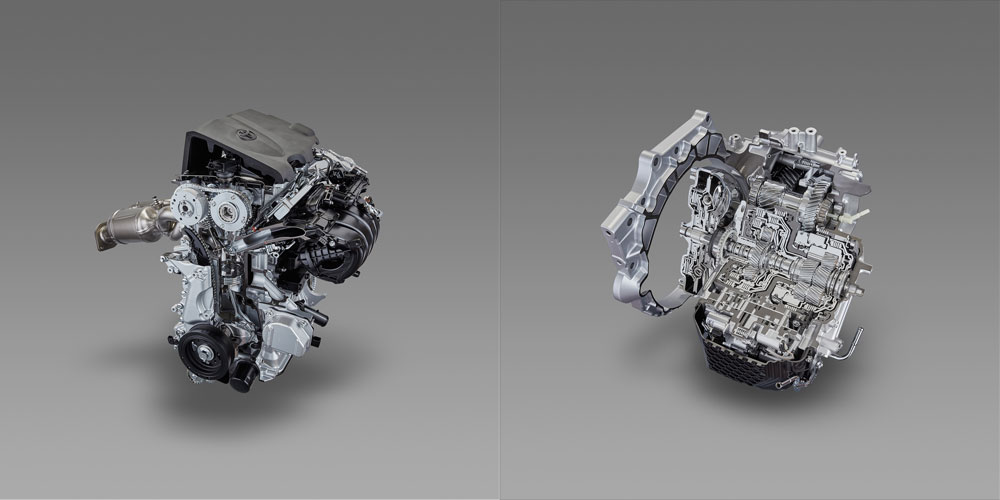TOYOTA ANNOUNCING NEW ENGINES!?!?!? WHAT WORLD AM I LIVING IN?!?!?!?! AND 9 ENGINES BY 2021!?
*faints*
It's about.... Damn. Time.
Great move. But those new engines will be in production for yet another two decades.
Not sure if that is a good or a bad thing, and not sure if is about time, or already too late., but I just hope Toyota has thought out very well in long-term future.
It is well known and forecastable that the future of cars is electric (regardless of self-driving), whether battery or fuel cell, and that where batteries or fuel cells are still insufficient for the time being, (plug-in)/ hybrids will be an alternative. What is also proven by Toyota, IMO the true "green" car company, as opposed to "so-called green", is that a de-tuned large displacement naturally aspirated gasoline engine is more efficient than a forced small displacement turbocharged gasoline engine. Although Toyota now makes turbocharged I4 gasoline and the up-coming turbocharged V6 gasoline, these engines are used as ICE only, and from what is seen are not meant to be used in conjunction with hybrid or plug-in hybrid technology. This can be seen by the future nomenclature of gasoline models:
IS 300 : Turbocharged I4
IS 300h : Naturally Aspirated I4 + Hybrid
LS 500 : Turbocharged V6
LS 500h : Naturally Aspirated V6 + Hybrid
As I said in another post, big engines are reserved for exotics and high performance cars, something that is not TMC business, even though they have the knowhow (Lexus LFA). When talking about such cars, the Japanese are lacking in status (this is marketing), and even a sportscar/supercar beater is not desirable even if much cheaper because of badge (Subaru WRX and Nissan GT-R). TMC is in the same situation with Lexus F. With that said, other than high-performance and exotics, V8 engines are dead, and TMC is not in high-performance and exotic market. The up-coming BMW M5 is according to inside news going to be the last M5 with V8, even with this generation M550i with V8 was not needed, but had no negative impact on costs, on the contrary it distributes the costs of N63/S63. The next M5 (after F90) is to get a Turbocharged I6 + Hybrid setup. But in the current 5 Series G30 for example, the cars that will sell and bring BMW money are 520d and 530d in Western Europe, and 530i and 540i in North America. Volvo for example, has only Turbocharged I4 engines that in conjunction with hybrid tech make up to 400 PS. Because of Toyota's preference for NA 6 cylinders over FI 4 cylinders for hybrids, TMC still makes V6 rather than I6, because they use that engine for FWD-T hybrids. Thus there is further development of I4 and V6, rather than costs cutting by I4/I6 or 90° V8/V6 engine platform.
In this is where the strategic question comes into play for the automotive industry: as time goes on, requirement for ICEs will get stricter, but EV technology and development will hinder profitability. Not meeting ICE requirements can result in sales ban or at least sales loss, lack of EV products will result pure market loss.
If TMC's engine plan is good for two generations (14 years), that is fine. In these two generations, V8's will be money losing products, because they will be high costs and low volume. This applies only for gasoline engines. Diesel engines for small cars are dead (since VAG Dieselgate). Daimler thinks about stopping diesel engines in North America, Japanese long ago did not work on diesel much. The only diesel market is Europe, and it will be hurt. In heavy duty vehicles, diesel will still prevail until there is some viable alternative, maybe hybrid diesel. But again diesel only makes sense in pick-up trucks, body-on-frame SUVs, and vans, and here only I4, I5 and I6/V6 make sense.
All that said, I hope Toyota's ICE investment, is a "transition investment" and not a "catch up investment", because it is too late to catch up. That is like BMW building an M1 supercar today, with NA V10 S85 with added direct injection to rival the Audi R8 and Lamborghini Huracan. It is too late, BMW missed that train. And so did TMC miss the train of powerful torquey turbocharged gasoline engines. But sometimes, in times of uncertainty as these currently in the car industry, being slow to react can turn into advantage, instead of reacting fast yet making the wrong moves.
If TMC's makes a high-performance turbocharged V8, I hope it is based on the old yet proven and still best in class V8, rather than build a new V8. But IMO, TMC does not need any other V8. No turbocharged V8 will sound as a naturally aspirated V8, and at that point, a lighter, more compact but same performing turbocharged V6 is even better. All the next Land Cruiser needs is a turbocharged gasoline V6 and a turbocharged diesel I6. The V8 Diesel (1VD) is truly outdated.
Sad to see no Dual Clutch coming.....Porsche PDK is the standard...the freaking thing reads minds it moves so fast....
IMO PDK is overrated. Automatics are now just as fast, and smoother. CVT on the other hand are underrated and underdeveloped. The only place I see a DCT make sense due to lack of torque converter, is as a 2-speed DCT for electric cars. But a CVT could probably be even better. Just as about engines, there is no point for TMC to spend money on developing DCTs.
PS: Mr Toyoda is head of TMC BEV development. That is the most important thing, I don't want to see Toyota go the way of Nokia (PS: Nokia is making a come back.).


